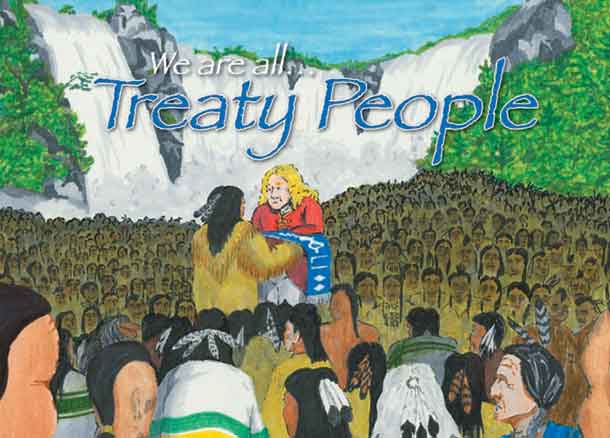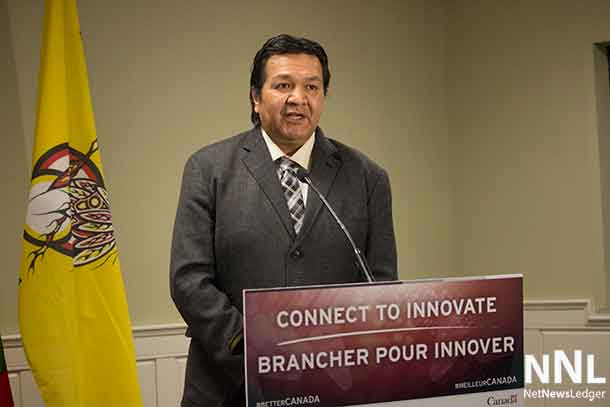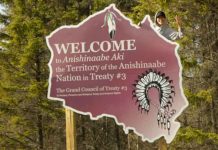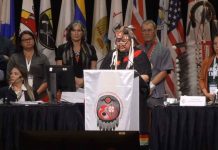
After a Decade of Litigation, 21 Anishinaabe Communities Along Lake Huron Will Finally Access Their Fair Share
In a significant development, 21 Anishinaabe communities along the north shore of Lake Huron in Ontario are set to receive a long-awaited settlement of $10 billion for the wealth generated on their lands over the past 173 years. The Robinson-Huron Treaty signed in 1850 had promised annual payments to Indigenous beneficiaries in exchange for the right to use their lands. However, a clause in the treaty capped the payments at $4 per person in 1874, and they have remained stagnant ever since.
A Landmark Ruling: Ontario Superior Court of Justice Recognizes Duty to Increase Payments
In 2018, the Ontario Superior Court of Justice ruled that the Crown had a duty to increase the annual payments to the beneficiaries of the Robinson-Huron Treaty. Since then, Canada, Ontario, and the First Nations communities have engaged in negotiations outside the courts. These negotiations, which began in January, have finally culminated in a proposed settlement that was announced during a press conference in Sudbury.
$10B Settlement Proposed to Compensate for Unpaid Past Annuities
During the announcement ceremony, Ontario, Canada, and the 21 Anishinaabe First Nations revealed the proposed $10 billion settlement to compensate for the long-overdue annuities. Under the terms of the agreement, the federal government will contribute half of the settlement amount, with the other half being borne by the provincial government. The settlement marks a step towards reconciliation and renewing the treaty relationship between the Crown and the Indigenous communities of the Robinson-Huron treaty territory.
“Today’s announcement of a proposed settlement is an important step in settling historic annuities through respectful and meaningful negotiations. Ontario is committed to renewing this important treaty relationship, and we would like to thank everyone involved as we continue to advance reconciliation and prosperity for Indigenous peoples,” stated Greg Rickford, Minister of Indigenous Affairs, Government of Ontario.
Hope for the Future: First Step in Upholding Treaty Rights
While the proposed settlement focuses on past annuities, Batchewana First Nation chief Dean Sayers emphasizes that it represents a significant commitment to respecting and upholding treaty rights. He views it as the first step towards addressing the economic, social, and political struggles faced by Indigenous communities due to the Crown’s breach of the treaty. Negotiations to review the terms of annual payments going forward are ongoing, providing hope for a brighter future.
Consultations and Distribution of Settlement Funds
Duke Peltier, Secretary-treasurer of the Robinson-Huron Treaty Litigation Fund, highlights that community members have many questions about the settlement’s specifics. He urges patience as consultations within the communities take place in the coming months. These discussions will guide the development of policies and procedures for the equitable distribution of the compensation fund among the communities. The settlement also includes a provision for an individual component to the annuity, although the exact amount is yet to be determined.
Funding Community Development and Addressing Historical Wrongs
Part of the compensation will be allocated to fund community development projects, according to Nipissing First Nation chief Scott McLeod. This allocation reflects a commitment to address the effects of colonization and uplift Indigenous communities. Minister of Crown-Indigenous Relations Marc Miller emphasizes that this settlement is not limited to a specific parcel of land but encompasses the entire relationship upon which Canada has been built. Miller hopes that the compensation will rectify historical wrongs and raises awareness about the issue, emphasizing the need for education on the matter.
Finalizing the Settlement: Internal Approval Processes and Unpaid Bills
Before the proposed settlement can be finalized, both the federal and provincial governments must complete internal approval processes. Minister Miller acknowledges that this settlement represents a significant step towards addressing the country’s unpaid bills and that efforts are underway to expedite compensation claims across Canada. He compares the lengthy delay to paying late fees on a library book, underscoring the importance of resolving long-overdue.
NDP Applaud Agreement
Ontario NDP MPP Sol Mamakwa, Deputy Leader and Critic for Indigenous and Treaty Relations, issued the following statement applauding the largest negotiated treaty settlement in Ontario’s history between Ontario, the federal governments and First Nations in Ontario:
“I am pleased to see that the provincial and federal governments have recognized the urgent need to address the historical injustices faced by 21 Robinson Huron Treaty First Nations. This settlement signifies an important step towards correcting past wrongdoings and advancing reconciliation. Most importantly it acknowledges the need to address the short-changing of First Nations in Ontario that has occurred for centuries.
“This agreement, dating back to 1850, was never meant to be the last word on the relationship. A renewal and ongoing dialogue to ensure a mutually beneficial relationship between the government and First Nations for both parties to thrive in changing environments was always necessary.
“While this agreement primarily deals with past annuities, the future Robinson annuities arrangement must be settled justly. All levels of government must continue to fully consult and negotiate in good faith moving forward regarding all treaty matters.
“I firmly believe that negotiating in a respectful manner will not only strengthen future relationships between the government and First Nations but also bring the just prosperity owed to First Nations.
“My expectation moving forward is that all appeals by the Crown before the courts will be dropped and negotiated out of court.
“Meegwetch to the Robinson Huron Litigation team for their tireless efforts. Their hard work has played an invaluable role in achieving this significant progress.”




